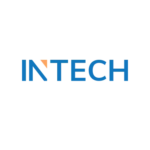Project Manager
PermanentBookmark Details
Not just a job, but a career
Yokogawa, award winner for ‘Best Asset Monitoring Technology’ and ‘Best Digital Twin Technology’ at the HP Awards, is a leading provider of industrial automation, test and measurement, information systems and industrial services in several industries.
Our aim is to shape a better future for our planet through supporting the energy transition, (bio)technology, artificial intelligence, industrial cybersecurity, etc. We are committed to the United Nations sustainable development goals by utilizing our ability to measure and connect.
About the Team
Our 18,000 employees work in over 60 countries with one corporate mission, to “co-innovate tomorrow”.We are looking for dynamic colleagues who share our passion for technology and care for our planet. In return, we offer you great career opportunities to grow yourself in a truly global culture where respect, value creation, collaboration, integrity, and gratitude are highly valued and exhibited in everything we do.
RESPONSIBILITIES
◆ Project Planning
Produce workstream or project plans, ensuring that all activities are identified, are appropriately organized to deliver project objectives, and comply with the organization’s project management framework.
◆ Project Scope Definition
Manage the delivery of project activities to support the specification and agreement of project deliverables.
◆ Stakeholder Management
Plan and deliver stakeholder engagement activities to develop effective project working relationships and to ensure that stakeholder needs and concerns are identified and met.
◆ Project Risk and Issue Management
Identify and evaluate risks, issues, dependencies, and constraints associated with the project, escalating where appropriate. Where necessary, develop, agree on, and implement solutions to overcome these.
◆ Project Reporting and Review
Draft project review reports and presentations, including key information, commentary, and recommendations to support the review process and enable stakeholders to evaluate progress and agree on change.
◆ Project Team Management
Lead a small project team; communicates the outcomes needed and direction to achieve outcome, coordinates team actions on project tasks; requests additional team member support when needed; and identifies areas of improvement necessary to build the capability of the team through training, coaching and mentoring.
◆ Project Resource Management
Manage the deployment of project resources, proactively managing project costs, providing forecasts, and presenting variances with narrative at appropriate review points to ensure effective utilization.
◆ Work Scheduling and Allocation
Assign short-term work schedules to a team of subordinates in order to achieve expectations while following established timelines.
◆ Document Preparation
Prepare moderately complex documents using a variety of applications for technology devices such as standard office software. Also responsible for gathering and summarizing data for reports.
◆ Project Close-out and Handover
Draft elements of product documentation and user training to support handover to business as usual. Contribute to post-project reviews and identification of lessons learned.
◆ Project Assurance
Conduct assurance reviews within the project, facilitate the delivery of assurance reviews by independent third parties, and take appropriate action to resolve any issues identified so that senior stakeholders have confidence that the project can deliver to time, budget, and quality.
◆ Personal Capability Building
Develop own capabilities by participating in assessment and development planning activities as well as formal and informal training and coaching; gain or maintain external professional accreditation where relevant to improve performance and fulfill personal potential. Maintain an understanding of relevant technology, external regulation, and industry best practices through ongoing education, attending conferences, and reading specialist media.
Behavioral Competencies
◆ Drives Results
Consistently achieves results, even under tough circumstances. For example, devotes considerable effort to surpassing goals and achieving the best possible results; goes above and beyond to achieve excellence. Drives ahead with great focus when faced with obstacles and setbacks; maintains productivity and a positive attitude.
◆ Situational Adaptability
Adapts approach and demeanor in real time to match the shifting demands of different situations. For example, takes steps to adapt to changing needs, conditions, priorities, or opportunities. Understands the cues that suggest a change in approach is needed; adopts new behaviors accordingly.
Skills
◆ Prioritizing
Works with full competence to prioritize components of a project, program, or portfolio work in context with risks, activities, stakeholders, etc. across the life of the project or program. Typically works without supervision and may provide guidance.
◆ Project Communications Management
Works with full competence to ensure timely and appropriate planning, collection, creation, distribution, storage, retrieval, management, control, archiving, and disposition of project information. Typically works without supervision and may provide guidance.
◆ Project Management
Works without supervision while providing guidance when required on managing projects and/or programs within desired cost, time and quality parameters.
◆ Verbal Communication
Uses clear and effective verbal communications skills without supervision and provides guidance when required on expressing ideas, requesting actions and formulating plans or policies.
◆ Data Collection and Analysis
Works without supervision and provides guidance when required on analyzing data trends for use in reports to help guide decision making.
◆ Negotiation
Negotiates without supervision and provides guidance when required on how to help the organization by obtaining consensus between two or more internal or external parties who may have different interests.
◆ Project Change Management
Works without supervision and provides guidance as required on identifying, managing and controlling project-related changes.
◆ Project Quality Management
Works with full competence to manage the work that determines the quality policies, procedures, and responsibilities so the work satisfies the needs for which it was undertaken. Typically works without supervision and may provide guidance.
◆ Project Resource Planning and Control
Works with full competence to identify, acquire, and manage the resources (physical and human) for the project. Typically works without supervision and may provide guidance.
◆ Project Risk and Issue Management
Works without supervision and provides guidance when required on identifying, assessing, prioritizing and managing project-related risks.
◆ Requirements Traceability and Management
Works with full competence to manage the documentation, archiving, traceability, changes, and approvals of requirements throughout the project life cycle. Typically works without supervision and may provide guidance.
◆ Project Cost and Budget Management
Works with full competence to estimate and manage the effort and finances to complete the work within budget. Typically works without supervision and may provide guidance.
◆ Project Estimating
Works with full competence to estimate each of the components of project, program, or portfolio work, including costs, activity durations, resource needs, risks, stakeholders, etc. across the life of the project or program. Typically works without supervision and may provide guidance.
◆ Project Organization and Structure
Works with full competence to build the structure and culture of the project team, and define roles and responsibilities within that structure to enable the achievement of project mission and objectives and the effective operation of key business processes. Typically works without supervision and may provide guidance.
◆ Project Schedule Management
Works without supervision and provides guidance when required on sequencing and scheduling tasks into a project plan.
◆ Project Tracking and Reporting
Works without supervision and provides guidance when required on measuring and reporting progress toward intermediate targets to make sure a project stays on track to achieve its ultimate goals.
Education
Bachelor’s Degree or Equivalent Level
General Experience
Sound experience and understanding of straightforward procedures or systems (7 to 12 months)
Managerial Experience
Basic experience of coordinating the work of others (4 to 6 months)
Yokogawa is an Equal Opportunity Employer. Yokogawa wants a diverse, equitable and inclusiveculture. Wewill actively recruit, develop, and promote people from a variety of backgrounds who differ in terms of experience, knowledge, thinking styles, perspective, cultural background, and socioeconomicstatus. Wewill not discriminate based on race, skin color, age, sex, gender identity and expression, sexual orientation, religion, belief, political opinion, nationality, ethnicity, place of origin, disability, family relations or any other circumstances. Yokogawa values differences and enables everyone to belong, contribute, succeed, and demonstrate their full potential.
Are you being referred to one of our roles? If so, ask your connection at Yokogawa
about our Employee Referral process!










Share
Facebook
X
LinkedIn
Telegram
Tumblr
Whatsapp
VK
Bluesky
Threads
Mail